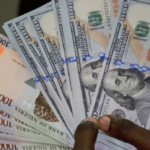
Well, dating has certainly been a wild ol’ ride in 2022. But, what’s in store for our love lives in 2023?
Over the past year, our relationship priorities have shifted, with people favouring increased vulnerability and mindfulness, as well as giving sober (curious) dating a whirl. As we delve into cuffing season, a new trend called Winter Coating has emerged, whereby people reach out to former partners and exes in a bid to rekindle an extinguished flame so they’ll have someone to keep them warm over winter. The cost of living crisis is also having a major impact on dating habits, with many opting for « cash candid dating » — increased transparency over their finances (and money worries) in the early stages of dating. And, environmentally conscious singles are opting for « green dating » and eliminating any potential matches who aren’t aligned with their views on climate change.
Dating app Bumble has released its annual predictions for what we can expect in the new year. Spoiler alert: emotional needs are high on people’s list of priorities.
As Naomi Walkland, Bumble’s vice president for Europe, said in a statement, « 2022 was a formative year with the return of travel, the drastic increase in our social lives and commitments, and a number of turbulent global events. » She added that many people were left feeling exhausted and overwhelmed in response to these changes. « In response to this, we’ve seen that people on Bumble are now prioritising identifying and clearly articulating their boundaries. These boundaries can be emotional, like being upfront about what they want or recognising red and green flags, physical, like ensuring they don’t overcommit themselves, or financial, encouraging candid conversations about previously taboo topics. »
New year, new me(n)
In a survey of 14,300 Bumble users around the world, 74 percent of men say they’ve looked inward and analysed their own behaviour more than ever and have a clearer understanding of toxic masculinity. The term toxic masculinity refers to a set of beliefs and behaviours including hiding your emotions or distress, using violence or « tough-guy » behaviour as a way of showing power, and exhibiting an appearance of « hardness ». 52 percent of people on Bumble are actively trying to challenge the gender stereotype that men shouldn’t show emotions out of fear of seeming « weak ». Over a third (38 percent) of people now talk about emotions more openly with male friends and half of men think that dismantling gender roles in relationships and dating will benefit them.
Guardrailing
Setting boundaries is essential in relationships of all kinds — whether you’ve just started dating, you’re at work, or in pretty much any other situation involving interactions with other human beings.
63 percent of daters say they’re clearer about emotional needs and boundaries, and 59 percent are more thoughtful and intentional about how they put themselves out there, with 53 percent aiming to not overcommit to socialising.
Love-life balance
A lot of people have been redefining what work and professionalism means to them in 2022. It makes sense, therefore, that people are also taking a closer look at the values they seek in romantic partners.
Looking good on paper and prioritising professional success isn’t top of everyone’s list these days. When it comes to what people are looking for in a partner, 54 percent of people surveyed care more about their work/life balance than their career status. One in 10 people will no longer date someone who has a very demanding job and 52 percent of people are actively trying to make more space for rest in their life.
Open casting
One in three daters are now more open to considering dating beyond their « type ». In the UK in particular, 52 percent of daters are expanding their horizons beyond what they’d typically go for.
And one in four people are putting less pressure on meeting other people’s expectations of who they should date.
Ethical sex-ploration
Let’s talk about sex, baby. 43 percent of daters are navigating sex and intimacy in a more exploratory and open way, while 53 percent believe it’s paramount to express sexual wants and needs early on in a relationship. Over the past year, 20 percent of daters have explored their sexuality more and one in eight people are considering ethical non-monogamy.
These figures don’t mean we’re having more sex, however. in the UK, 42 percent of daters surveyed are currently not having sex and they’re fine with that, and globally 34 percent said the same.
Wanderlove
33 percent of people on Bumble are now more open to having relationships with people not in their current city. With more jobs allowing for flexible work arrangements and even « digital nomad » arrangements, 14 percent of daters have explored the prospect of becoming a digital nomad and dating people from far flung destinations.
Dating renaissance
Many of us know someone who had a pandemic breakup. Per Bumble’s data, 39 percent of people on the dating app ended a marriage or serious relationship within the past two years. These individuals are not entering a second chapter — a renaissance, if you will — and some of whom (36 percent) are using dating apps for the very first time. Welcome, friends!
If 2022 was anything to go by, we’re in for more changes in 2023 — hopefully positive ones, like those listed above.





